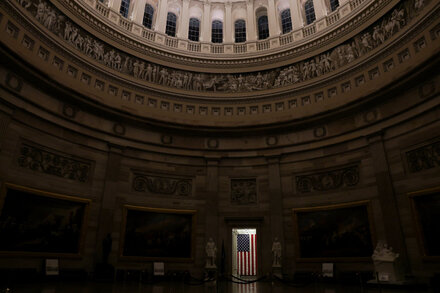Global financial markets are bracing for significant economic fallout as the prospect of a U.S. federal government shutdown looms large. Investors, businesses, and economists are now weighing the potential costs and widespread disruptions such an impasse could trigger.

Financial markets globally are increasingly signaling apprehension as the prospect of a U.S. federal government shutdown looms, with investors, businesses, and economists bracing for the potential economic fallout. As a critical deadline approaches, the inability of lawmakers to reach a consensus on funding legislation could trigger widespread disruptions, casting a shadow of uncertainty over the domestic and international financial landscape.
The primary concern revolves around the immediate and cascading effects a shutdown would have on the world’s largest economy. Essential government services would continue, but many non-essential operations would cease, leading to the furlough of hundreds of thousands of federal employees. This directly impacts household incomes and consumer spending, a significant driver of economic growth.
Economists are quick to point out that even a brief shutdown can shave points off quarterly Gross Domestic Product (GDP). Historical precedents, such as the 2013 shutdown and the extended 2018-2019 impasse, demonstrated a measurable drag on economic activity. Delays in the release of crucial economic data, including inflation reports, employment figures, and manufacturing surveys, further exacerbate the situation by obscuring the true state of the economy for investors and policymakers alike.
“A government shutdown introduces a layer of unwelcome uncertainty into the economy,” noted one leading market analyst. “Beyond the immediate fiscal hit, the delay in crucial economic data can obscure the true state of affairs, making informed investment decisions more challenging and potentially fostering greater market volatility.”
Market Reaction and Sectoral Impacts
Market participants are already exhibiting signs of nervousness. Stock indexes could experience downturns as investor confidence wanes, driven by fears of reduced corporate earnings and a less stable economic environment. Sectors heavily reliant on government contracts or regulatory approvals, such as defense, aerospace, and certain scientific research fields, would likely feel an immediate pinch.
The bond market might see a flight to safety, with demand for U.S. Treasury bills potentially increasing in the short term, driving yields down. However, prolonged uncertainty could also raise questions about the nation’s fiscal reliability, potentially impacting longer-term borrowing costs and the U.S. dollar’s strength. Small businesses, which often rely on federal loan programs and support services, could face significant operational hurdles.
The tourism and travel industries also stand to lose, as national parks, museums, and other federally managed attractions close their doors, impacting local economies dependent on visitor spending. Furthermore, a shutdown can erode international confidence in U.S. governance, potentially influencing global investment flows.
While the exact duration and severity of a potential shutdown remain unknown, the financial markets’ anticipation reflects a deep understanding of its disruptive potential. Stakeholders are closely monitoring developments in Washington, hoping for a resolution that can avert or quickly end an event with costly ramifications for businesses, workers, and the broader economy.
Source: Read the original article here.





